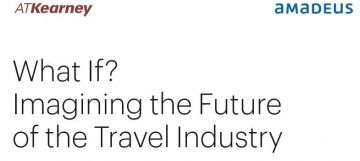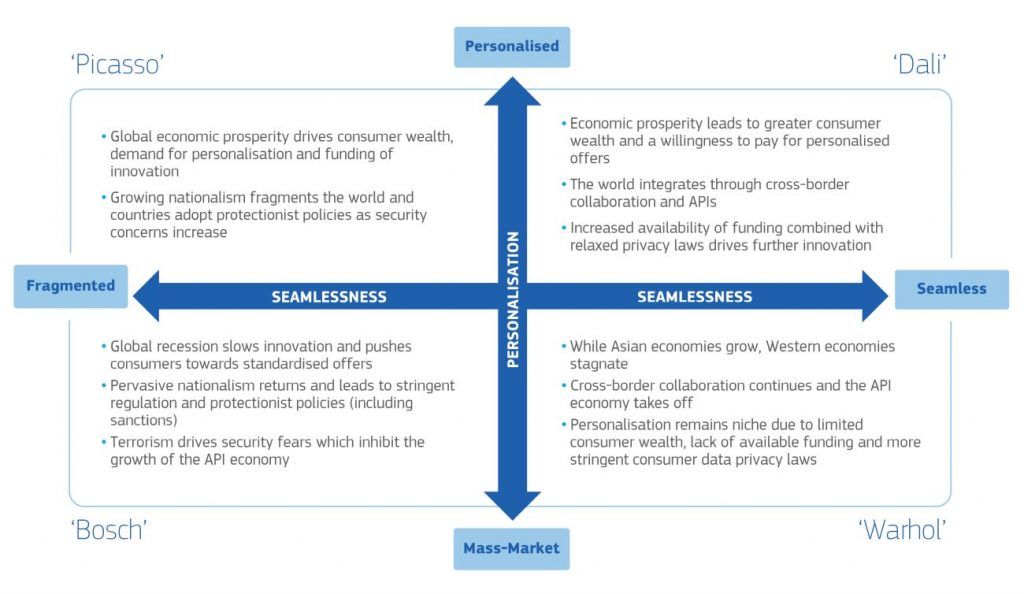Amadeus-A.T. Kearney Report Evaluates Factors that May Transform Travel Industry
Amadeus and A.T. Kearney have partnered on a study focused on four possible future scenarios that evaluate all the factors that are, or may soon be, transforming the travel industry
The travel industry must be better prepared for economic and political disruption if it is to make the most of future economic growth, a new report from global management consulting firm A.T. Kearney has outlined. Commissioned by travel technology provider Amadeus, the study was based on a series of industry workshops and interviews from across the technology and travel industries.
 According to the report entitled What if? Imagining the future of the travel industry report, whilst the sharing economy, virtual reality and the Internet of Things are all improving the traveler experience, international geo-political, social and economic developments are disrupting and polarizing the world as we know it, limiting the industry’s potential for future prosperity unless companies act now.
According to the report entitled What if? Imagining the future of the travel industry report, whilst the sharing economy, virtual reality and the Internet of Things are all improving the traveler experience, international geo-political, social and economic developments are disrupting and polarizing the world as we know it, limiting the industry’s potential for future prosperity unless companies act now.
Against this backdrop, A.T. Kearney highlights two key trends that are changing the travel industry landscape, and driving future success:
 – Personalized travel experiences versus mass market. Technology enables the aggregation of consumer data and the use of Artificial Intelligence to learn about traveler behavior. In addition, it may help to meet individual needs, instead of a more traditional one-size-fits-all approach.
– Personalized travel experiences versus mass market. Technology enables the aggregation of consumer data and the use of Artificial Intelligence to learn about traveler behavior. In addition, it may help to meet individual needs, instead of a more traditional one-size-fits-all approach.
– Seamless travel versus fragmentation. Truly seamless travel will require governmental co-operation and data sharing between businesses: from airports and airlines to destination services such as hotels, restaurants, and ground transportation.
Based on these two key trends, Amadeus and A.T. Kearney have identified four future-looking world scenarios that travel companies need to prepare for today, if they are to maximize future growth and success tomorrow:
– The Picasso scenario is built on a fragmented world marked by the rise of populism and by heightened security concerns. This has the effect of making more travel destinations off-limits. Even so, most parts of the world enjoy economic growth. Companies invest in innovation to reach more customers through mobile channels, and this interaction enables businesses to provide more sophisticated personalized offers.
– The Dali scenario assumes that both social attitudes and economic prosperity create a more favorable environment towards sharing data. This brings about more relaxed privacy laws and lighter regulation, which allows for greater personalization of travel. Living in the Dali scenario, travel becomes faster, cheaper, and safer. People benefit from less security controls at borders and have real-time information about unexpected events such as flight delays.
– In the Bosch scenario, business costs rise across the industry as companies struggle to comply with a mosaic of different legal, tax, labor and data protection laws. We are confronting a fragmented world based on protectionism and distrust. Facing Bosch’s political environment, travelers seek comfort in trusted brands and book directly with well-known travel providers.
– The Warhol scenario is characterized by seamless and not personalized travel that considers the implications of strong economic growth in Asia, giving rise to a large middle class with more disposable income for travel and leisure. Travelers would rather go for low cost, mass-market travel instead of having personalized options even in a world free of barriers.
To download the What if? Imagining the future of the travel industry report, click here.






